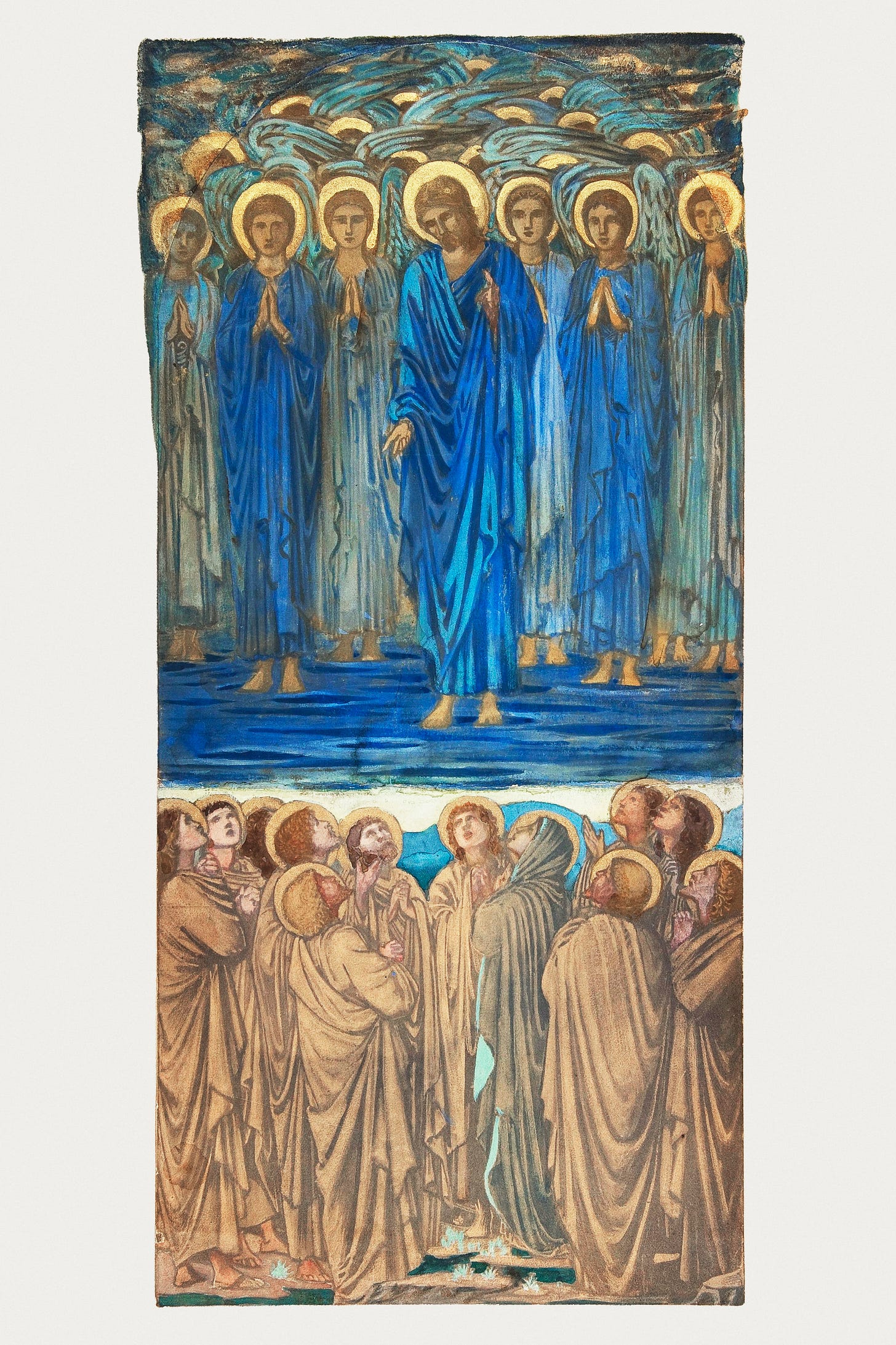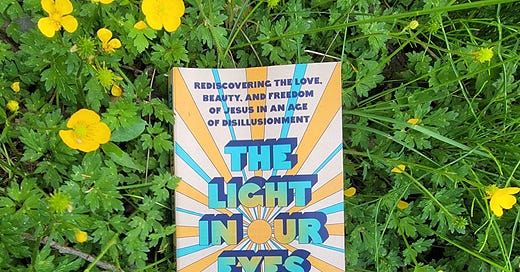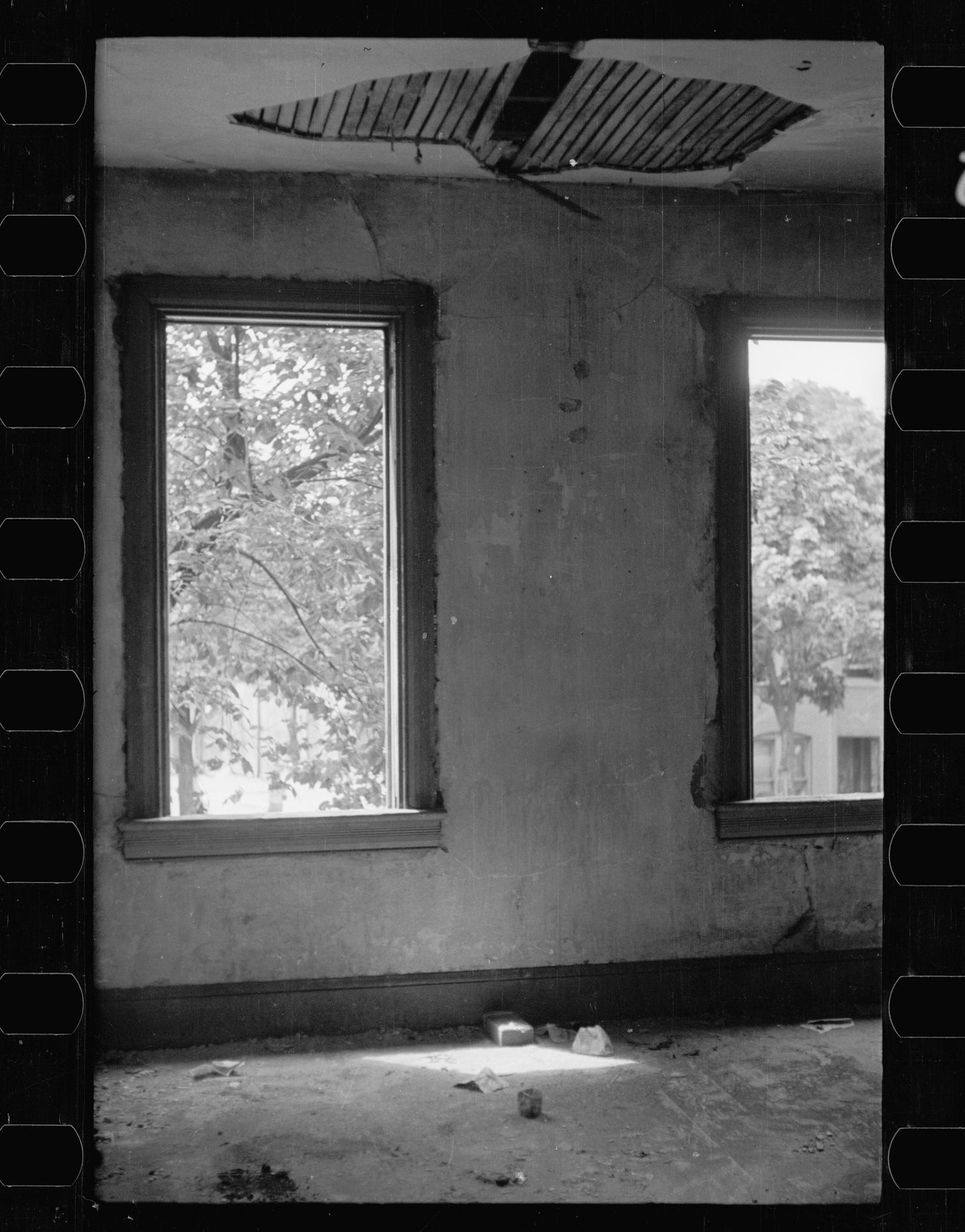Book Review: The Light In Our Eyes by Nicholas McDonald
why you should read Nicholas's latest book
On Deconstruction
The year was 2019. I was in the middle of renovating my home. In between sips of wine, mudding and taping our new bedroom, and listening to Theocast, I started to have an existential crisis. What if I have gotten a lot of things wrong about my faith? Then fast forward to 2020, a year most people prefer to forget—quite a few of my church friends’ marriages started to unravel, and all of a sudden, the men we trusted as leaders started to fall faster than the cup of water my cat knocked off my table. Many of my friends left the church, and none came back.
Fast forward to today: I am still hanging on to my faith, but for a while, I was struggling to make the past few years of my life make sense. Do I pick apart everything I believe to the point where I lose all my orthodoxy? Or does it even matter? Or do I continue with the status quo, nod and smile as if there were nothing wrong, and pretend the great dechurching never happened?
The Light in Our Eyes by
came at a time when I felt I had just come out of a coma. It's as though I fell off a ladder while cleaning my gutters, lost my memory, and am trying to piece everything together, but I couldn't even remember my name. Every time I go to church, I feel a dome of plexiglass over me. And so I wake in the morning, and I step outside, and I take a deep breath, and I get real high (on caffeine), and I scream from the top of my lungs: what’s going on with evangelicalism lately?The divide is miles wide. On one side, you have people clinging harder to their conservatism, to the point where empathy is now a sin. On the other side, you have people completely triggered by everything Christian—and I don’t blame them, since politics and Christianity are very enmeshed right now. Not to mention all the scandals and church hurt that came cascading down all at once, and we are all that lady in infomercials when all the plastic containers fall on her when she opens the kitchen cupboard.
Nicholas’s book is a book I didn’t know I needed in 2025. The first part alone is worth the whole book. He gave me language to describe my wilderness years. He described deconstruction as a spectrum: “...the term deconstruction is not a one-size-fits-all description. In my experience, folks mean at least four separate—but related—things when they use the term deconstructing to describe themselves.” He goes on to give us five categories: loyal, doubting, disillusioned, deconstructing, and deconstructed. That is a game changer for me. Because for the past few years, I carried a lot of guilt and shame for not feeling like I could fit in. I lived in two worlds. In one world, I lived with my friends who had abandoned the faith, and I was cynical with them. In the other world, I still went to church, pretending to be the same pre-2019 self. I don’t want to abandon the faith, but things can’t stay the way they are. Being able to put words to my experience lifts a heavy burden off my back. Turns out, I am not crazy or unfaithful—I was disillusioned.
I also appreciate the way he shared his journey. I laughed out loud at some of the stories he shared. While I didn’t grow up in the evangelical church, I can still relate to all the weird subculture things like “Worldview Camp.” His chapter on exclusion gave me flashbacks to my early years of homeschooling my children. Fear is a powerful drug. I remember having to Google everything I did to gauge whether it was biblical or not. I laugh at that now, but at the time, I felt as though I couldn’t function without doing my Bible study a certain way or dressing a certain way. And no, you can't make friends with non-believers, or your children will be corrupted by some worldly influence
On Restoration
In the second half of his book, he talks about a hopeful way forward. His chapter on "Escape" was particularly relatable. For years, I thought that once we got to heaven, we would all merge into this sea of believers, singing "How Great Is Our God," dressed in white robes with no identity of our own. Honestly, the vision the evangelical subculture gave me felt very dystopian. Whenever I thought of heaven, I felt dread. God simply created you for his glory, and that’s it. And anything beyond that is deemed worldly.
It’s tragic, honestly, that a lot of my friends left the church because of the vision we were given. I cannot name one singular teacher who taught that, but between the hangover of "A Thief in the Night" in the 70s, the Satanic Panic of the 80s, and the purity culture of the 90s, all these things all at once spawned this vague sense that the singular purpose of a Christian is to attend mid-week Bible studies, go to church, and Ray Comfort your neighbor (iykyk).
Nicholas, in this section, gently picks apart the wrong ideas that have been background noise for years. It felt liberating—finally, someone put it into words what a lot of us have been feeling, and allowed Scripture to speak for itself, rather than trying to make it say something it doesn’t. What if a lot of what we hold dear as doctrine is simply culture?

On Jesus’ Dreams
What resonated with me in this section is the chapter on "Freedom." You mean you can be weird and be a Christian at the same time? Well, weird in a good way, in a way that you can write poetry and like horror movies at the same time. Because God made you, you. Nicholas pastorally shows us how God gives us freedom and how God also gives us wisdom to be truly free. Ultimately, true freedom is built on a foundation of Christ and the gospel. I appreciate this chapter so much because a lot of it applies to me as a parent. I still homeschool my children, and no matter how hard I tried to fit them into the long-denim-skirt, homeschool-to-Bible-college-to-marriage pipeline (it felt like the Christian thing to do at the time), God told me, “No.” My kids all love Jesus. One of them loves anime and heavy eyeliner. Another loves to paint. And another plays guitar and loves the Beatles and CCR.
Why You Should Read The Light in Our Eyes
What also stood out to me throughout Nicholas's book is his sense of humor. It feels like having a friend over for coffee, laughing at ourselves, and processing the awkward stage we’re in within evangelicalism. He doesn’t write in a condescending tone, trying to accuse you of falling away or make you question your life choices. Instead, he gently guides you back to hoping again, to see glimpses of Christ's beauty, to remember the gospel. He reminds you that the earth is not going to be burned up for heaven. Rather, heaven is coming to earth.
Get a copy of his book here.
And a playlist inspired by the book no one asked for:







